Interview: BD Wong Taking THE GREAT LEAP To New Perspectives
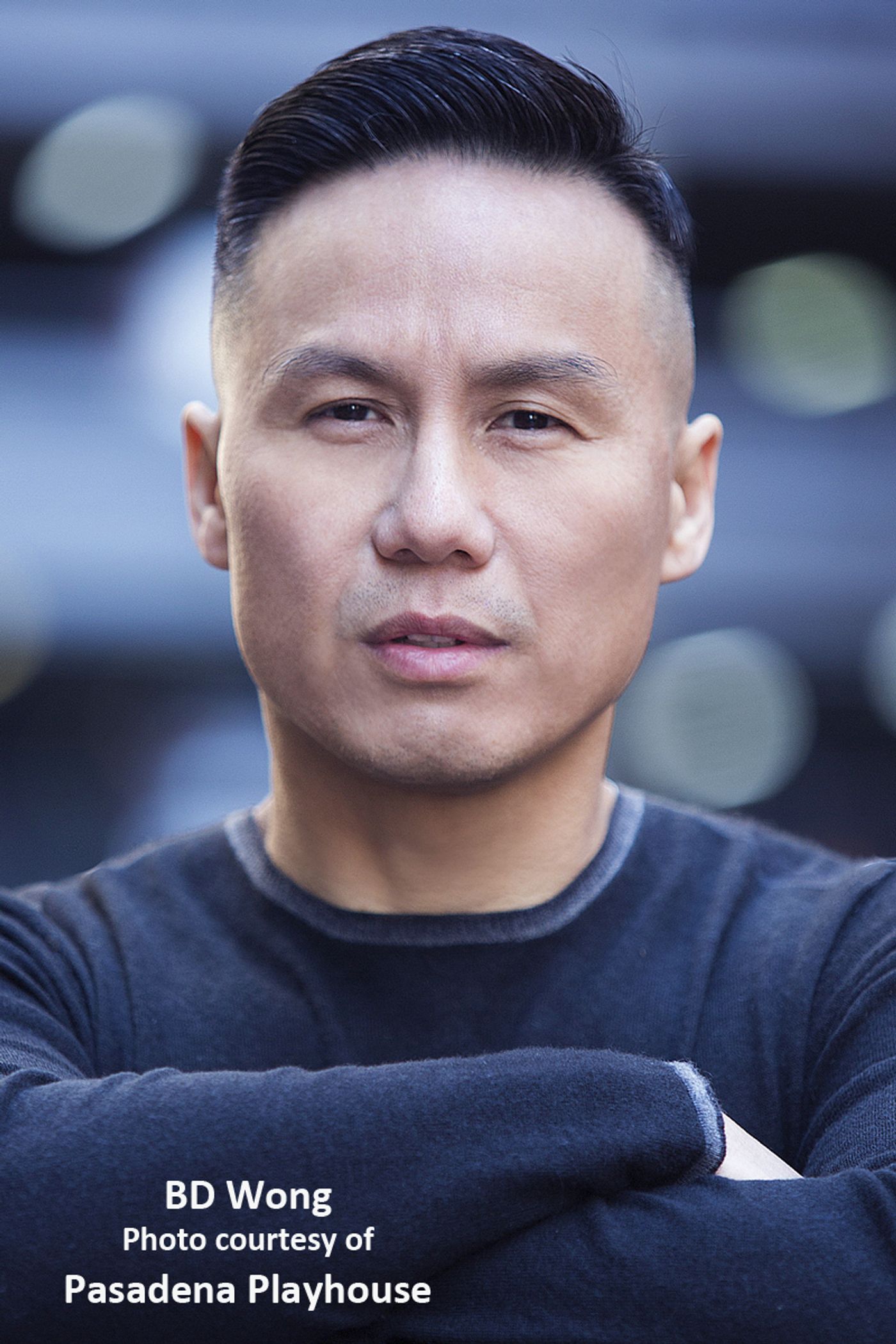
In his Broadway debut in 1988, BD Wong won his Tony Award (Best Featured Actor in a Play) for his ground-breaking role of Song Liling in David Henry Hwang's M. BUTTERFLY. Over the past year, in between shooting his two television series (as Whiterose on Mr. Robot, and as Awkwafina's father in Comedy Central's Awkwafina Is Nora From Queens), BD has managed to star in two theatrical productions of Lauren Yee's THE GREAT LEAP (in New York and in San Francisco), and now will be directing THE GREAT LEAP at The Pasadena Playhouse, which begins previews today November 6, 2019. THE GREAT LEAP tells the story of an American basketball team's not-so-smooth path on its Beijing trip for an exhibition game.
I had the chance to catch up with BD, having last interviewed him during his book tour of Following Foo in 2003.
Thanks for taking the time for this interview, BD!
You played Wen Chang in the New York premiere of THE GREAT LEAP last year and in San Francisco's American Conservatory Theatre earlier this year. What inspired you to direct this Pasadena Playhouse production?
I love this play, and I loved the opportunity presented to me to direct the play with an Asian-American, specifically a Chinese-American, sensibility. Though I haven't known Lauren a long time, we both are Chinese-Americans from San Francisco (where THE GREAT LEAP is set), and there is some shorthand there as a result.
What minor differences between the Atlantic Theatre and the A.C.T. productions have influenced your current take on Lauren Yee's script?
I would say the most notable difference to me is that my sensibility is the sensibility of a Chinese-American from San Francisco, which also happens to be the POV of the author. I absolutely loved both directors and both productions I acted in, but neither director happened to have that particular perspective. So that's fun for me, because otherwise, it might be challenging for me to direct a third production of this play and feel like I could make a unique contribution or explore territory that wasn't already expertly mined.
What would your three-line pitch of THE GREAT LEAP be?
A high school teen basketball phenom from Chinatown in San Francisco wears down a faded college basketball coach, and gets on his team that's playing an exhibition game against Beijing University in 1989 - "to play in the land of my people..." The American and Chinese coaches happen to share a loaded history with one another. All three characters converge in this Big Game that climaxes the play against a backdrop of turbulent politics and the unhealed emotional wounds of the two men's past.
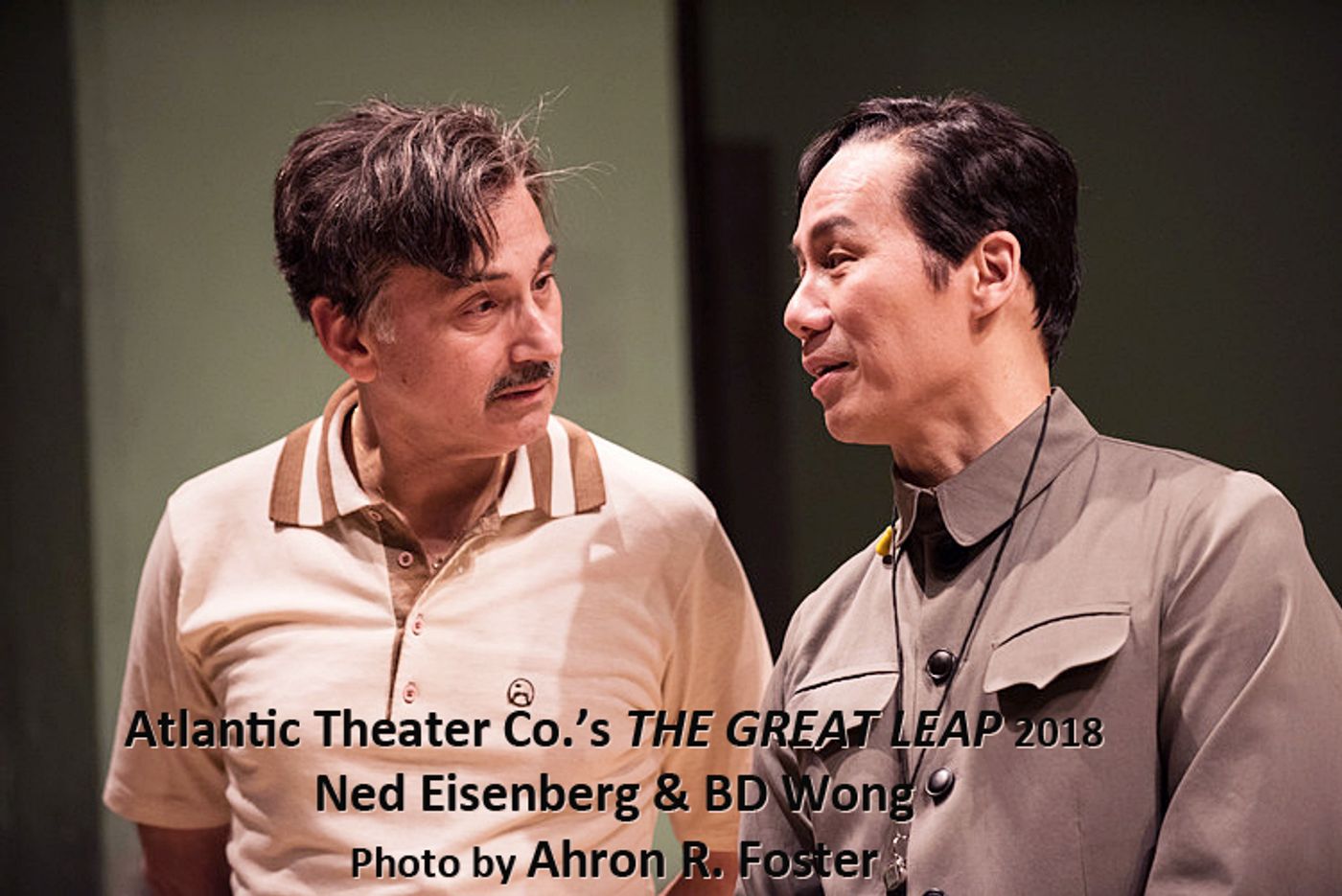 What attracts you to Lauren Yee's works?
What attracts you to Lauren Yee's works?
A playwright who intertwines refreshing humor and raw emotion is not that common. The fact that Lauren writes about Asian people is an incredible selling point on top of all that.
Your history with Pasadena Playhouse goes back to MAIL in 1987. What do you remember about that show and Pasadena Playhouse back then?
The show was a tremendous success. It did not last at all once it went to Broadway, which was eye-opening for me. But to this day, they are still talking about it at the Playhouse. It is unquestionably beloved. It had a phenomenal cast: Michael Rupert, Brian Stokes Mitchell, Michele Pawk, Mary Bond Davis, Jonelle Allen. It was all just so much fun. John McDaniel was the musical director. The Playhouse was, and continues to be, a theater that serves its community. Some of the students of the original acting school still volunteer there in a big way. This dynamic is not unique to the playhouse, but it is a dynamic that sets theaters like it apart from your average regional that doesn't hold such a history.
THE GREAT LEAP is being produced by Pasadena Playhouse in association with East West Players. Your history with East West goes back to 1986 with A CHORUS LINE. What do you remember of that musical and East West back then?
It was life-changing for me. The original production A CHORUS LINE is probably the one show I had seen numerous times that really made me want to be an actor - aside from all the intense experiences I had performing in high school theater, of course. So to be in a production of it meant a great deal to me. It was a production with all Asian actors, and we all shared a kind of scrappy, super enthusiastic, unbridled enthusiasm that you rarely see, because we (the theater, really) were giving ourselves the permission to play these roles - aside from one Asian role all of the other 18 roles were off-limits to us. This is a big thing with Asian actors, even today - our inability to cut our teeth as actors by playing great roles in the American canon as a universal, common practice. The cast ate wonderful food together between shows, and we had lots of onstage pranks that we still talk about to this day. During one dinner break, I carved a penis out of a carrot and hid it in someone's "dance bag." And we would pass it around during the show unbeknownst to the audience, kind of like a theatrical "hot potato" game. When you went back to your bag and it was sitting there on top, you would think to yourself, "Dammit, I'm IT!" and immediately scheme who to pass it off on next. Weeks later, the carrot dried to a barely recognizable nub, and we were still playing the game. And you'd think, "Gosh, I love these people."
What changes have you noticed in the Los Angeles Theatre community now since the 1980s?
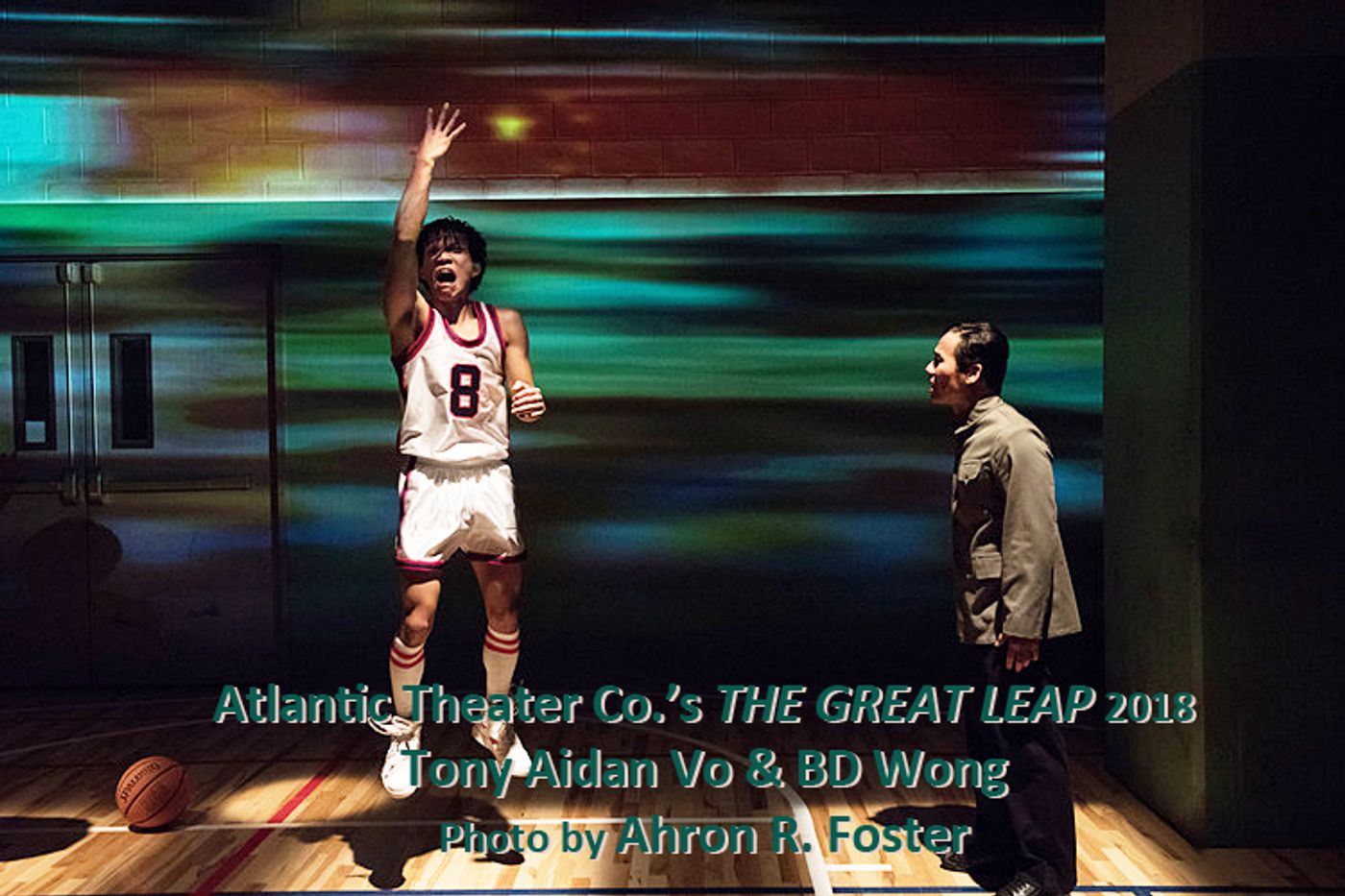 Well, for one, a partnership between Pasadena Playhouse and East West Players was unheard of then, to be quite honest. I am under the impression the artistic directors barely spoke to one another, let alone collaborated, in a way that was probably completely customary to most theaters. The wake-up call that the voice of diversity absolutely needed to be heard by everyone and not just the "niche ethnic theaters" is a completely new thing.
Well, for one, a partnership between Pasadena Playhouse and East West Players was unheard of then, to be quite honest. I am under the impression the artistic directors barely spoke to one another, let alone collaborated, in a way that was probably completely customary to most theaters. The wake-up call that the voice of diversity absolutely needed to be heard by everyone and not just the "niche ethnic theaters" is a completely new thing.
Take us back thirty years to M. BUTTERFLY. Which moment was the most absolute out-of-body experience for you - when you first found out you booked your Broadway debut role of Song Liling? Or the second Amy Irving announced your name as Best Featured Actor in a Play?
Hmmm! I'm not sure about this. I would say the booking was full of mystery in hindsight... what is this thing and what will it become? The Tony thing was after the mystery had revealed itself. But that was really an odd experience. I was really stressed out about it because I didn't want to be disappointed, and I didn't want to let David and the play down, so I kind of talked myself out of giving it any thought at all. Then, all of a sudden, that phase ended abruptly when she said my name and it was like, not real. They used to drive you from the theater where the broadcast was in a golf cart to the press conference which was somewhere else... I think it was at the Minskoff. And the whole ride Amy kept saying, "Are you okay? Are you okay?" That's about all I remember. I guess I wasn't very friendly to her, which if that's true, I regret.
Do you think M. BUTTERFLY's big reveal could have been kept a secret for theatre audiences in this day and age of the internet and social media?
NO!
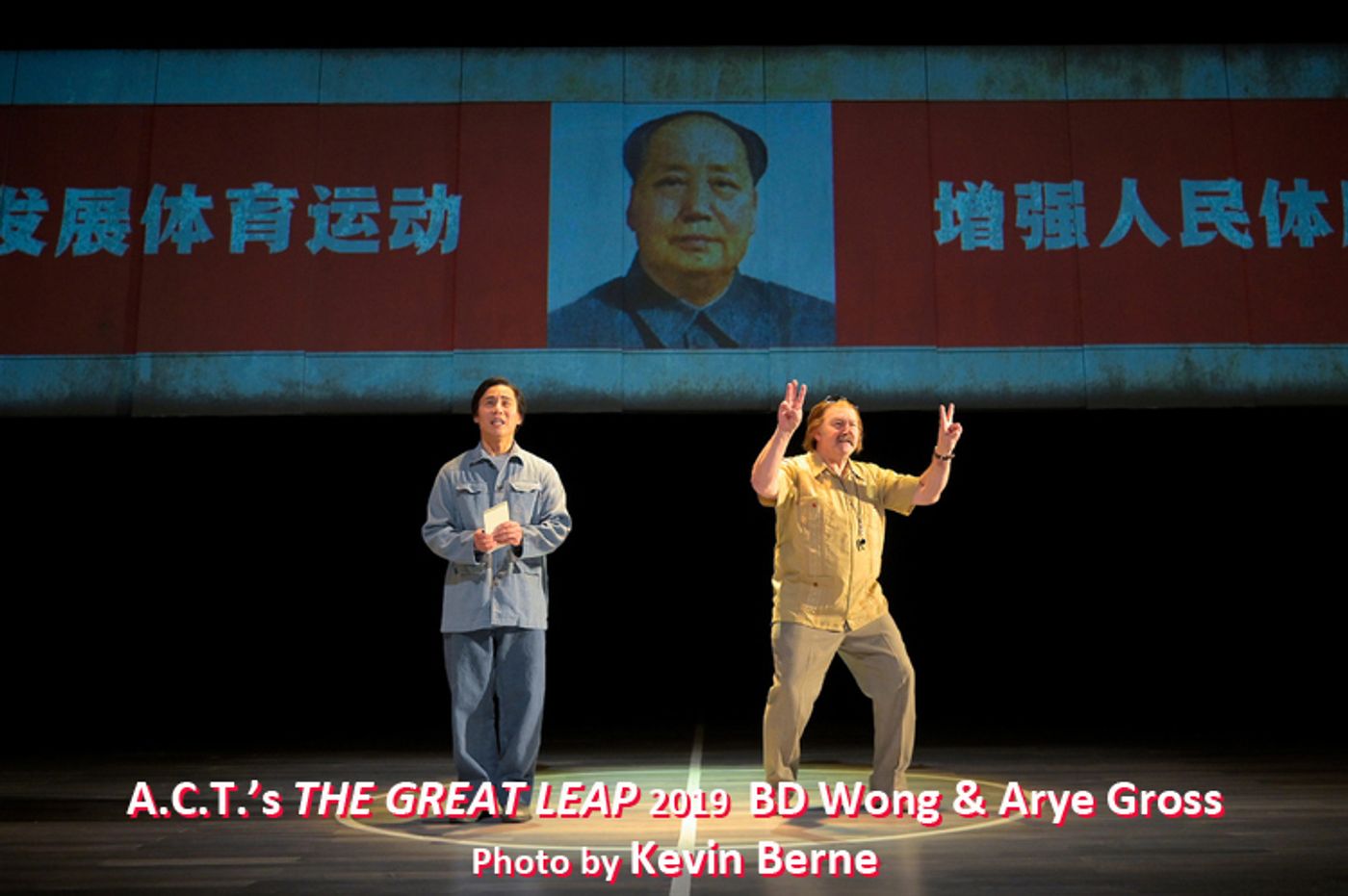 I knew you as Brad Wong in the 80s. Was it a big deal, or no big deal, to change your acting name from Brad to B.D.?
I knew you as Brad Wong in the 80s. Was it a big deal, or no big deal, to change your acting name from Brad to B.D.?
I had expected that after the play opened I would just go back to Brad. But exactly when? No appropriate time revealed itself. So it was kind of just like being in a holding pattern until the need to land passed. I did go to all the unions and made a formal change, and that didn't feel bad. I had a little "name dysmorphia" because I didn't want my friends and family to feel compelled to call me the new name. But then, on the other hand, I didn't want to have two names. So that was uncomfortable until I just asked everybody to call me the same thing, which I do now. My husband calls me BD, and if my husband calls me BD, everybody should call me BD, I think. Except Mom.
Did the M. BUTTERFLY producers have mixed feelings on you being nominated for a Featured Actor Tony, since it would 'give away' the reveal?
No, I don't think they gave that a thought at all. The performance seemed to hold up even when people knew, which was really fun for me. Women would still bring their husbands and take a kind of sadistic delight in watching them get all sweaty and sheepish when I started taking the makeup off and they "figured it out."
What prompted you to drop the periods in your initials BD?
Oh, that was the DMV. They can't handle periods. They put my name on my driver's license as "B,d Wong," which was profoundly depressing to me. Like I remember being extremely upset about this, and, of course, the mean lady working at the DMV that day didn't give a rat's ass. I really couldn't handle going through life handing that ID to TSA. So I just committed, and like before with my name, when I committed, I committed across the board. Plus, I discovered I liked how it looked much better without. Now when I look at it the old way, it looks so weird to me. Like two spaces after a period.
What did you think of the David Henry Hwang's reworked 2017 version of M. BUTTERFLY?
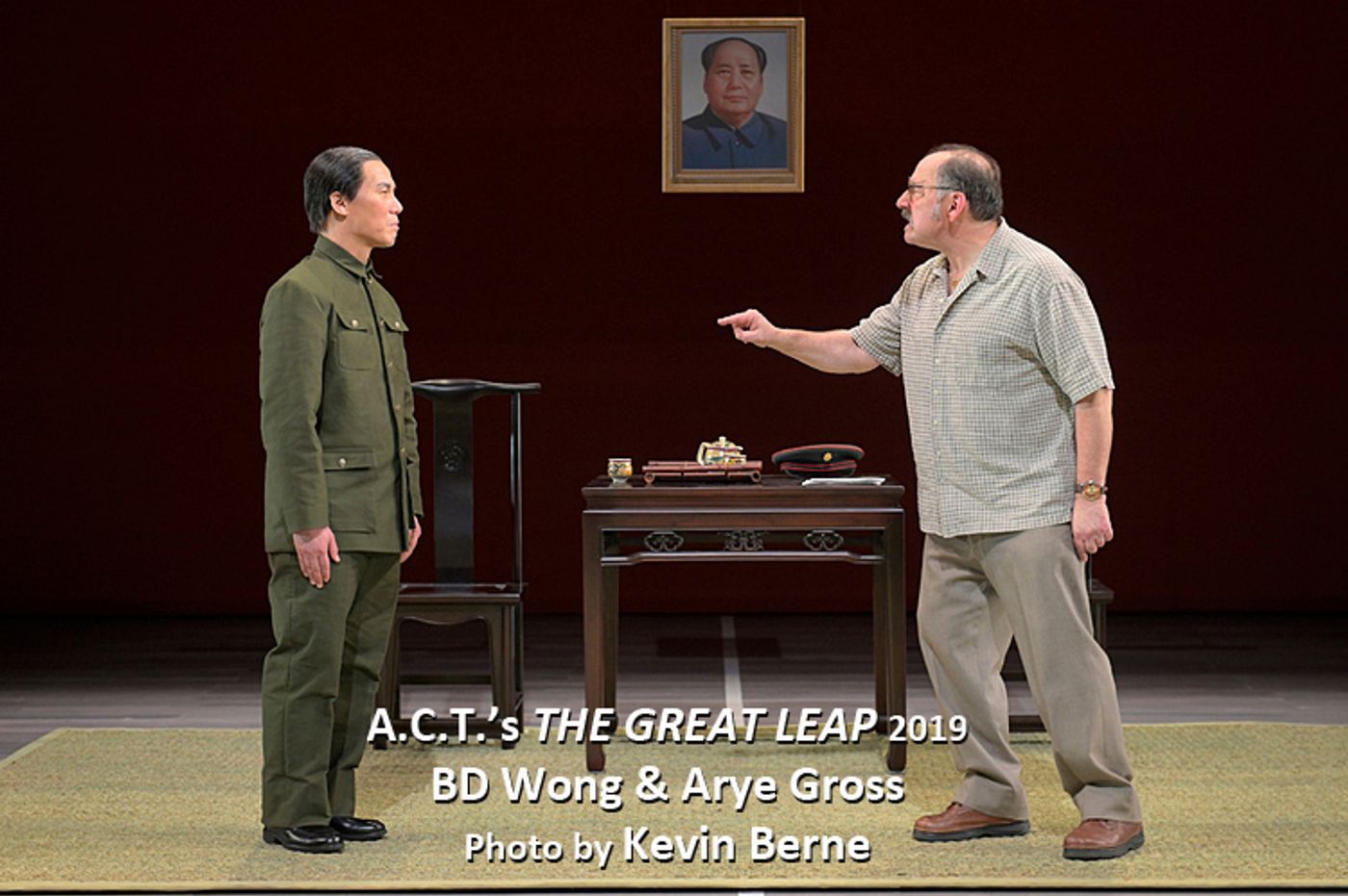 John Lithgow (René Gallimard to BD's Song Liling) and I saw it together. We both agreed afterward that it was infinitely fascinating. We were dying to know about the conversations between Julie Taymor and David that inspired him to rewrite the play. Jin Ha and Clive Owen were quite good. Touching back to what I said at the very top, I would love to see any of David's plays directed by Asian-American directors.
John Lithgow (René Gallimard to BD's Song Liling) and I saw it together. We both agreed afterward that it was infinitely fascinating. We were dying to know about the conversations between Julie Taymor and David that inspired him to rewrite the play. Jin Ha and Clive Owen were quite good. Touching back to what I said at the very top, I would love to see any of David's plays directed by Asian-American directors.
In an alternate universe, under what circumstances would Song Liling and Wen Chang interact? At a dim sum restaurant? Shopping at a farmers' market? In line for tickets for a weekend event or some kind?
In what context I'm unsure, but they would most certainly compare the difference between Chinese government subsidized housing in the 1960s and the 1980s... who got the better deal? Song Liling was allowed to have a lot of artsy contraband in her flat and creature comforts. Wen Chang has a spectacular view of the square, but it's a 15-story walk-up, rough even for New York standards. Who wore it better?
But if you're talking "alternate universe," you're asking about the wrong fictional BDW character. Whiterose from Mr. Robot on USA Network owns the Dark Army, owns China, owns the world, and therefore has everything to lose.
You have been one of the consistently working Asian actors in non-specified Asian roles. How proud of that are you?
Fairly so. Mostly because it's a constant struggle. It feels less like a breakthrough now, which is positive. But it's a constant struggle. You sometimes have to take a specifically Asian role, and make it seem non-specific in how you choose to play it.
You wrote Following Foo in 2003. Do you have another book coming in the near future?
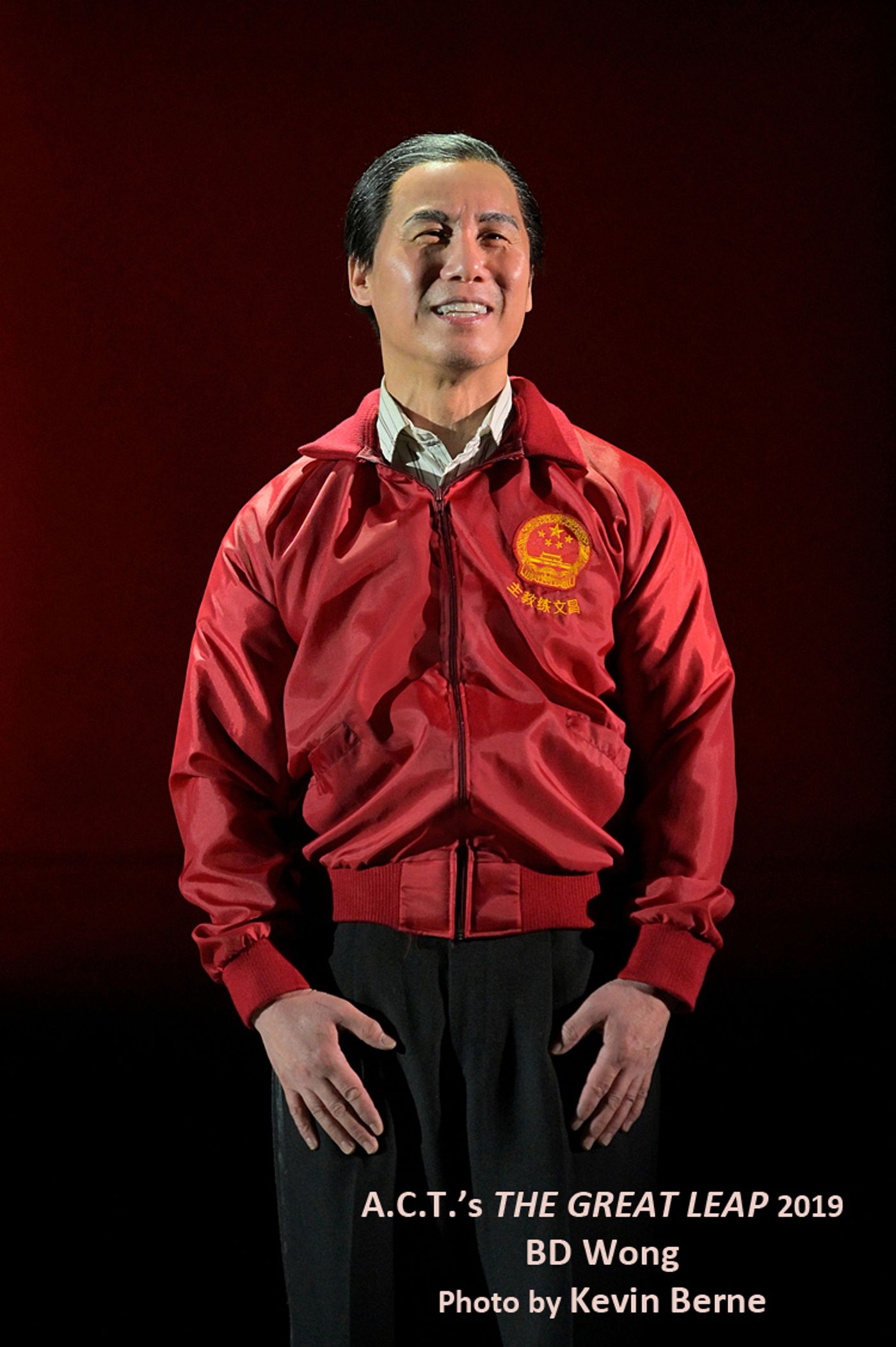 I love to write, and, yes, I do. But I can't tell you what, where, or when.
I love to write, and, yes, I do. But I can't tell you what, where, or when.
What's on the full plate of BD Wong you can share with us?
Mr. Robot's final season finishes airing right before Christmas, and that's wonderfully bittersweet. I put everything I had into that job - I really wanted to leave it all there on the floor. In January, the first season of Awkafina's show airs on Comedy Central. I am super proud of being on that. That was a great experience. In the spring of 2020, principal photography starts on the third and final Jurassic World movie.
But I'm most invested in my own writing and directing, like this GREAT LEAP here in Pasadena. Composer Wayne Barker and I are continuing to workshop our musical adaptation of the 90s movie Mr. Holland's Opus, in multiple phases, with the Wilson Center of the Performing Arts in Wilmington, NC; a huge project which will eventually involve hundreds of music students in the Wilmington area.
What feelings would you like The Pasadena Playhouse audiences to leave with after THE GREAT LEAP's curtain call?
I was taught to commit to the playwright and her ideas, as both a young director and a young actor. So I have only one feeling I'd like them to have: Lauren Yee IS A NATIONAL TREASURE!
Thank you again, BD! I so look forward to seeing your directorial vision on The Pasadena Playhouse stage.
For ticket availability and show schedule through December 1, 2019; log onto www.pasadenaplayhouse.org

Videos

